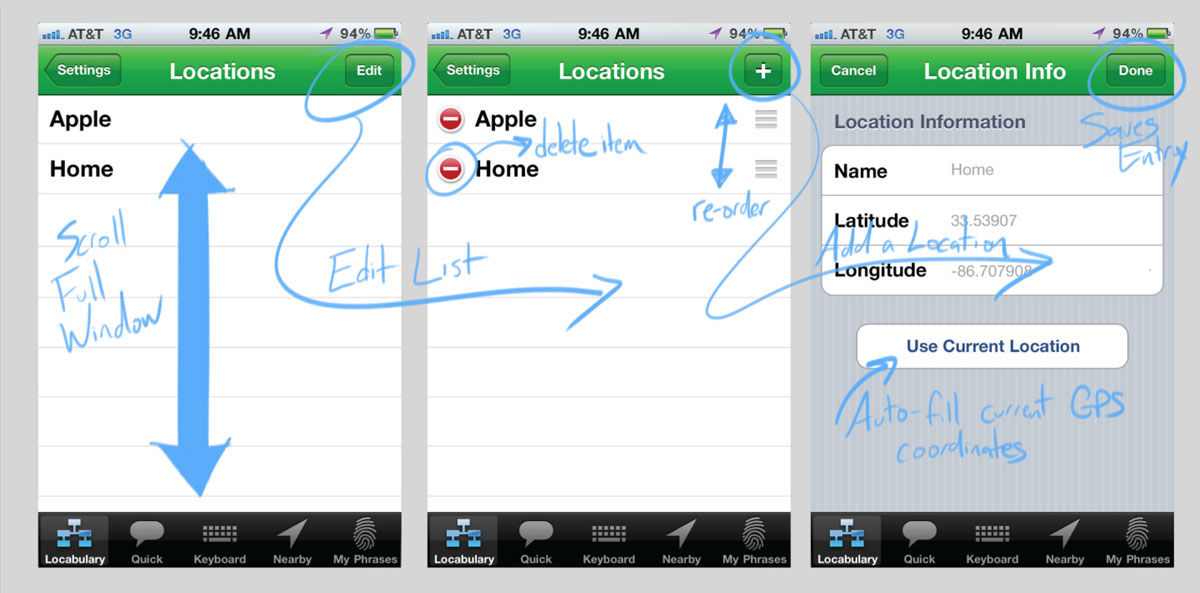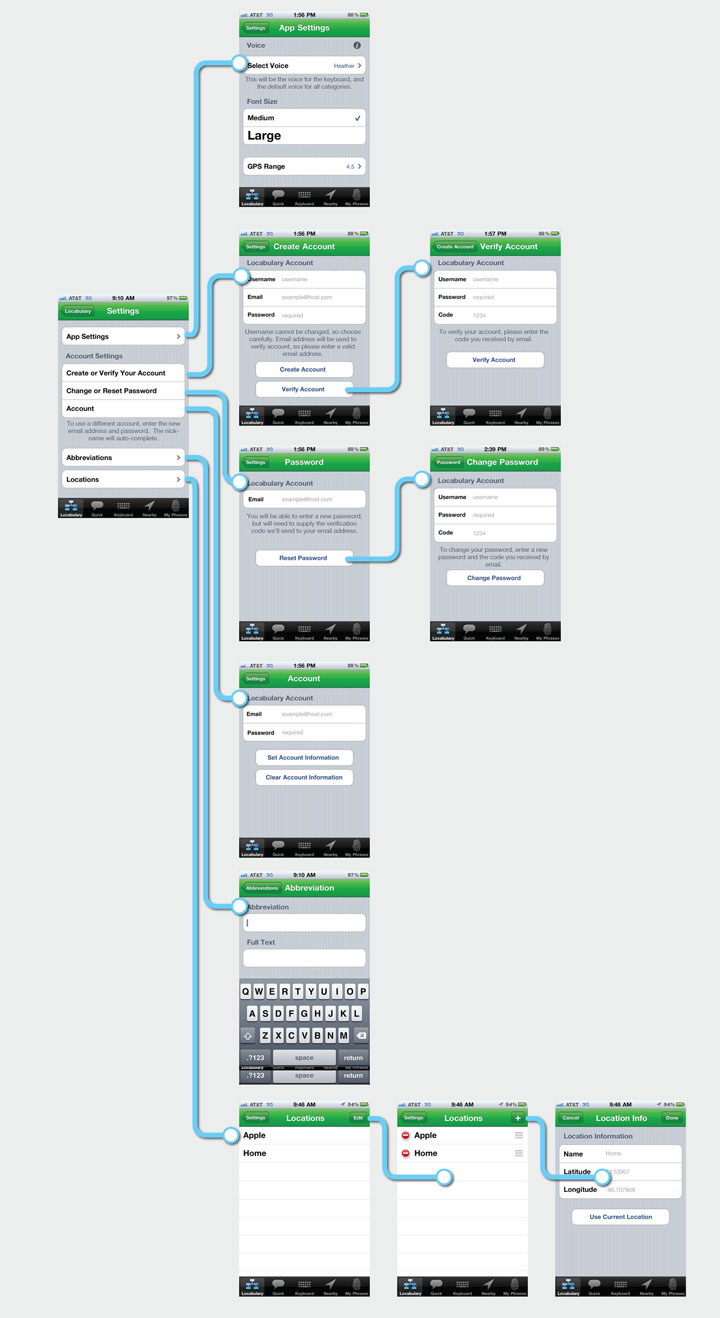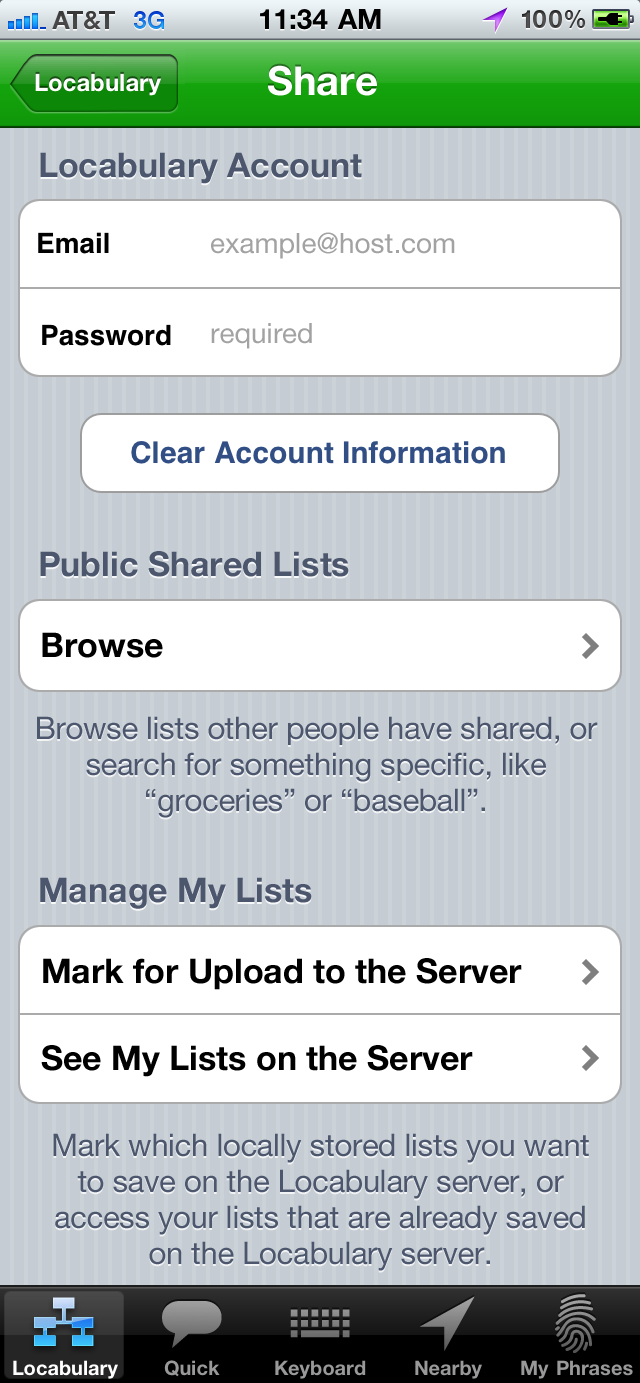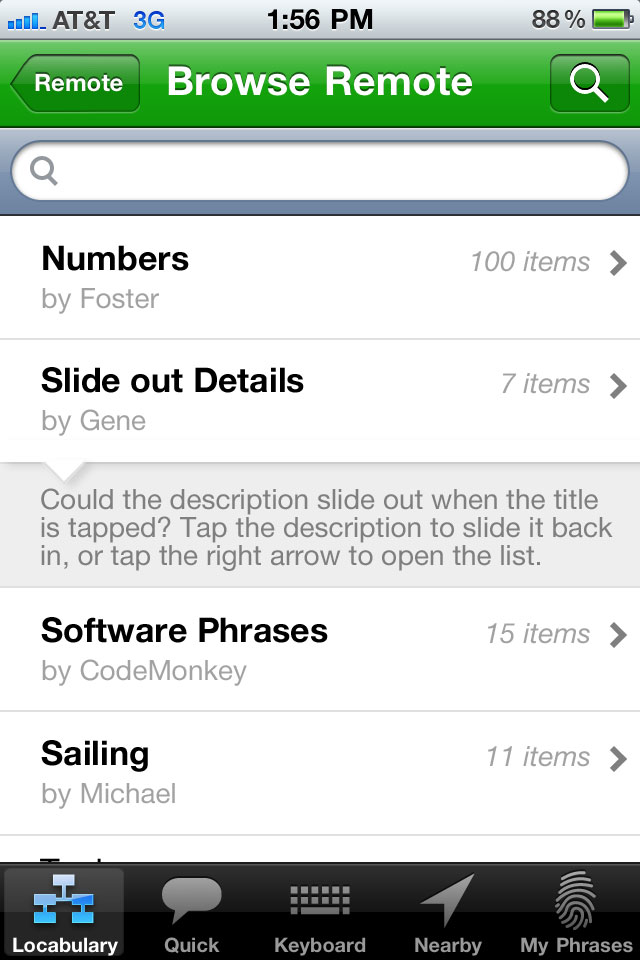Locabulary
An iPhone app that transforms the iPhone into a pocketable GPS based AAC (text-to-speech) device.
This application was specifically designed for people who have lost the physical ability to speak, but retain the mental capabilities of external language. A common situation where both of these criteria would occur is after a laryngectomy.
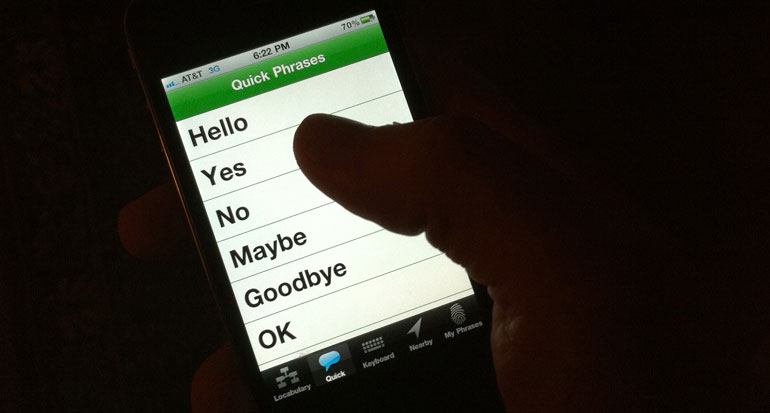
Project Details
The development of Locabulary was funded by a two year grant from the Alabama Department of Vocational Rehabilitation. As part of the budget we were able to provide iPhones to a small group of people with speech disabilities.
I filled several roles in the project, including design research, project and budget management and graphic user interface design. I especially enjoyed the time I was able to spend with our project participants both medical professionals and patients. Their feedback was invaluable to our development.
Pic-a-word
Pic-a-Word was developed in conjunction with Auburn University’s Assistive Technology Department, with a grant from the NCTI. It uses photographs and audio recordings to allow autistic children to engage audibly in a natural sounding way.
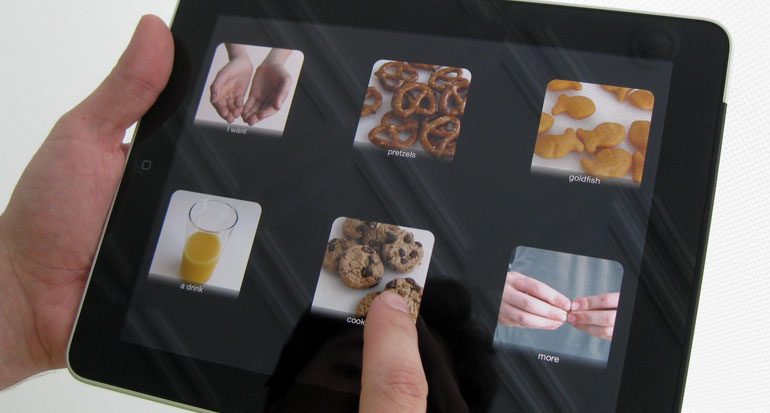
Pic-a-word was made specifically for a research study conducted during a summer day camp for children with autism spectrum disorder, run by Auburn University’s Assistive Technology Department. The children were given PECS flashcards to tell the camp counselor what food and drink they wanted during snack time. After a few days with the flash cards, they were then given an iPad with Pic-a-word.
The difference was apparent. The children were able to communicate more effectively with the iPad - partly because they were excited about it, but mainly because it had given them an audible voice. The camp counselor was able to listen with their ears rather than having to look exactly where a child was placing a finger on a paper flash card.
